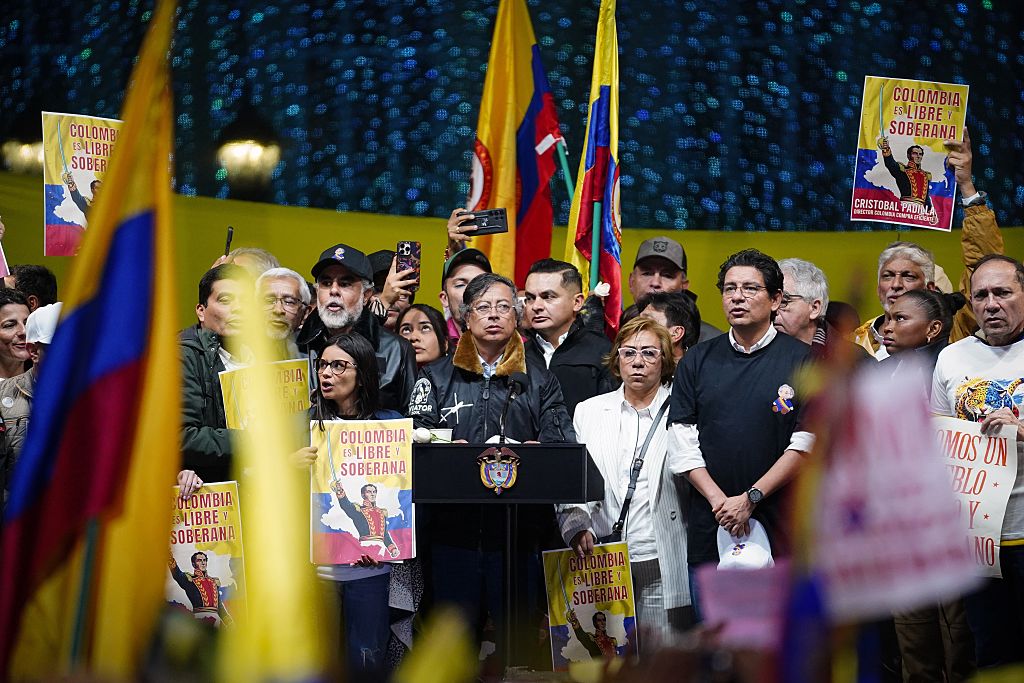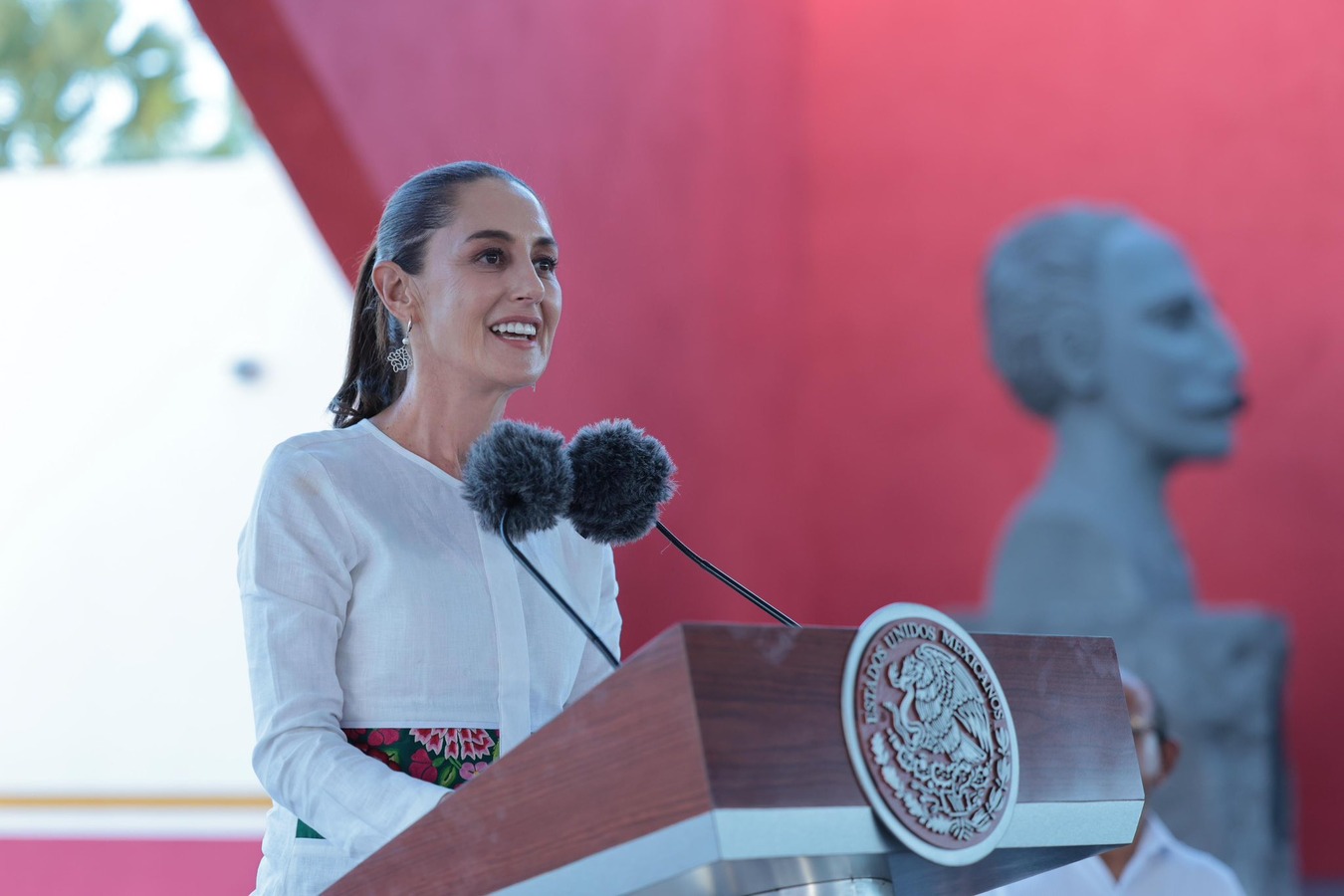Former President of Brazil, F.H. Cardoso Discusses Regional Trends
Former President of Brazil, F.H. Cardoso Discusses Regional Trends
In an interview with the Americas Society and the Council of the Americas released on May 16, the former President of Brazil, F.H. Cardoso, focused on the region-wide reform agenda and analyzed the state of democracy in the region. “Populism is a threat that we ignore at our own peril.” The interview coincided with his recent book signing event at our New York office.
Interview with Fernando Henrique Cardoso
President of Brazil (1994-2002)
May 16, 2006
An academic, author and president, F.H. Cardoso is one of the preeminent thinkers and visionaries in the hemisphere. Coinciding with the release of his new book, The Accidental President of Brazil, The Americas Society and Council of the Americas (AS/COA) interviewed President Cardoso to seek his views on issues being faced both in Brazil and across the region. In this wide ranging interview, President Cardoso talks about rule of law related reforms, threats to democracy, Brazilian patent protection, tax and fiscal reforms, and the differences between populism and democracy. Please continue to refer to the AS/COA for first-hand insight from the hemisphere’s leading political and business leaders.
AS/COA: Rule of law is a public good that benefits all citizens, and, at the same time, is important for economic growth and prosperity. What rule of law reforms should be prioritized for Brazil to increase the efficiency and predictability of its judicial system?
Cardoso: Broadly speaking, as the rule of law involves in fact a comprehensive set of elements that have to do with good and democratic governance, I would say that Brazil (and Latin America overall) needs to deepen the reform process of the 80s and 90s. Reform is an unfinished business in Latin America. It has been stopped at a midway point. It must go beyond economic policy (where there is still much room for improvement after all) and be extended to areas of the State that are closely associated with the smooth operation of institutions.
Paradoxically, dynamic economies and vibrant societies coexist with institutions that are archaic, methods that are old and dysfunctional, poor delivery of several State services. Priority points for reform now are the following ones in my view:
First, I see ample scope for political reform. I mean by that the creation of more legitimate mechanisms by which people may channel their demands and voice their concerns, by which political parties and elected politicians may become more accountable for the actions they take on behalf of voters, by which government officials may be exposed to a dialogue with taxpayers and citizens. This is the best antidote against the return of populism that now threatens the region.
Reform of justice would be the second point of the agenda for reform. The rule of law must be enforced. It should be as simple as that. It is not, however, in Latin America. Where the judiciary exists and acts independently, it does not take decisions speedily. As the saying goes, justice delayed is justice denied. In addition to the slowness of justice, it is expensive. The perception that justice works "only for the rich" is common. The frequent formalism and corporatism of Judiciary members contribute to reinforcing a negative perception of the administration of Justice.
The third point of reform would be combat against corruption. There is little I can add to what is common knowledge about the issue. I am convinced that corruption is the chief cause for the growing undermining of congress and public institutions in some countries in Latin America.
The fourth and final point is related to public security. Violence is widespread in towns as well as in the countryside. More often than desirable, violence is practiced directly by the state, or with its connivance, or by its omission. The population feels not only unprotected. Sometimes it is police forces themselves that blackmail ordinary people. No society can survive fear.
AS/COA: Within the broader category of rule of law, patent protection is a key to promoting innovation and technology. What do you see as possible solutions to concerns about intellectual property guarantees in Brazil?
Cardoso: I fully agree that patent protection is important for ensuring innovation and technology. At the same time, there are instances in which the public will be best served, as is the case of anti-HIV drugs, with policies that open patents for general use. Brazilian legislation on patent protection is in line with international rules. It is much more a matter of enforcement of existing legislation than creating new and more stringent rules. Enforcement of intellectual property rights in poor countries is a complex issue to say the least.
AS/COA: In your role as president of the Club de Madrid, you have stressed that maintaining democratic systems should be a strong priority for countries in Latin America. Democratic legitimacy is partly based on citizen perceptions that the institutions governing them are fair and accessible. What steps can be taken in the short and long-terms to improve the efficiency, accountability and ultimately the public perception of institutions in the region?
Cardoso: I have repeatedly stated that democracy should be preserved and strengthened in Latin America. Fighting for democracy brought me to political life in Brazil in the first place. It has been my firm commitment ever since to defend democracy.
I think that Latin America is now faced with the threat of populism. Populism can be seen as a deviation of mass democracies, or as an ill-shaped form of mass democracy. Both populism and mass democracies presuppose universal suffrage, growingly urban societies and the extensive use of mass communications techniques. They differ, though, in important ways. Democracy is a rules-based framework, a political system dependent upon the smooth functioning of institutions. Institutions and rules matter more than whoever holds power. By contrast, populism tends to be shaped essentially by the personalities, the personal ambitions and the political views of those who are in command, usually a charismatic and authoritarian leader.
Legitimacy in democracies is to be found essentially in the results of the ballot box. Legitimacy is conferred upon a democratic government to the extent that the rule of law is applied and enforced. Populism seeks legitimacy in exactly the opposite, in heavy criticism of the “old political establishment” and of the complex mediation processes of representative democracy. Populist leaders define themselves as “outsiders” who have established a direct connection with the population. That justifies the fact that they can allegedly do without rules, without institutions, often resorting to referenda or to other forms of direct democracy.
Finally, populism is based on manipulation and propaganda rather than deeds and informed opinion when it comes to making use of mass communication.
Populism is a threat that we ignore at our own peril. One may wonder what is then still missing to consolidate democracy for good in the region. I have a very simple answer to that: Latin America needs to carry on with reform, as I have said in my reply to the first question. .
AS/COA: Last year, the Brazilian Congress failed to reach consensus on long overdue tax and fiscal reforms. What needs to happen for a coherent set of reforms to be approved by the Brazilian Congress and what should be the main points within those reforms?
Cardoso: Everybody knows that Brazil needs a tax and fiscal reform. The components of that reform are also broadly known. But the political leadership and the political will is not there. Promoting tax reform in Brazil will be essentially a political negotiation in Brazil implying a new distribution of power (translated into revenues) among the three layers of government: the federal union, the states, and the municipalities.
AS/COA: Political party disputes have become quite common over the last few years. How do you see the current candidates and the next President working across party lines? What do you see as the main issues to be addressed by the next government and how can they be accomplished?
Cardoso: I am afraid I will have to skip that question. I am not a candidate and I am not fully involved in the campaign. It is up to candidates to speak now.
This interview is published by the Americas Society and Council of the Americas, non-partisan organizations founded to promote better understanding and dialogue in the Western Hemisphere, working in collaboration to advance their respective missions. The Americas Society is a public charity described in I.R.C. Section 501(c)(3), and Council of the Americas, a business league under I.R.C. Section 501(c)(6). The positions and opinions expressed in this publication are those of the authors or guest commentators and speakers and do not represent those of the Americas Society and Council of the Americas or its members or the Boards of Directors of either organization. No part of this publication may be reproduced in any form without permission in writing from the Americas Society and Council of the Americas








